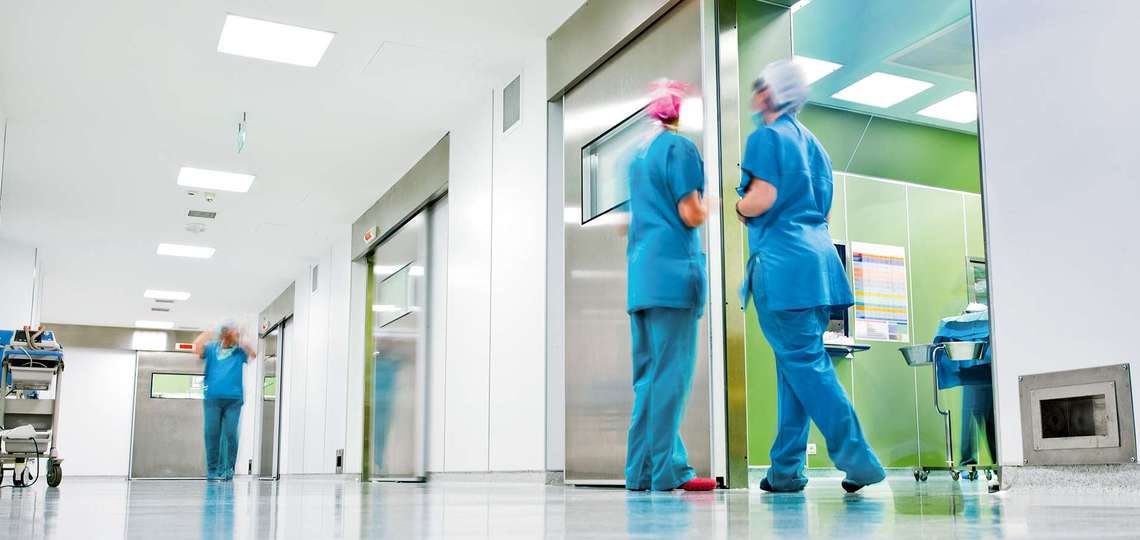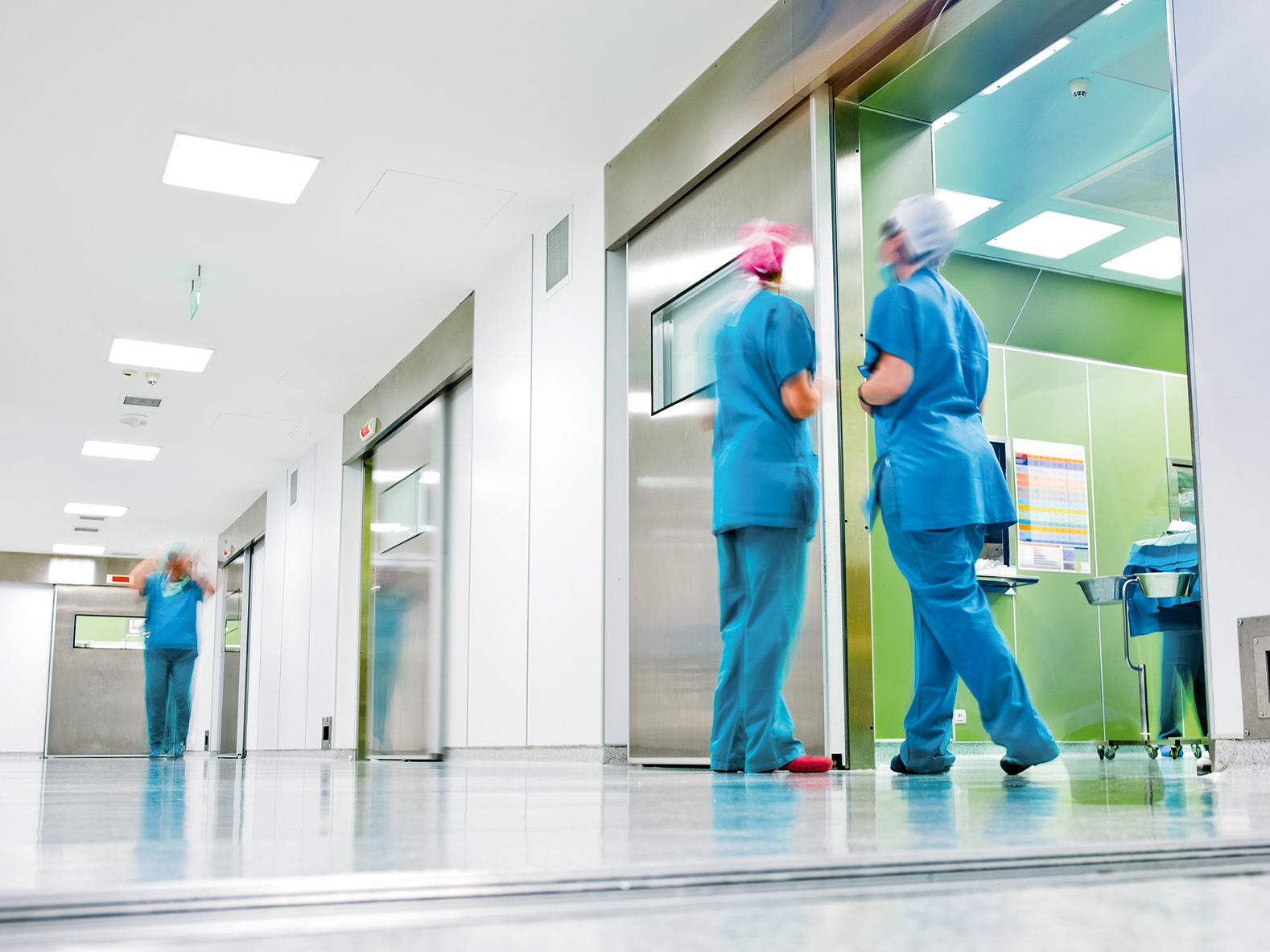
Multi-resistant hospital germs are a global problem, but some countries are achieving particular success in addressing this challenge. Particularly our western neighbours in the Netherlands are role models in this respect. What is their strategy?
As soon as they are admitted, high-risk patients in the Netherlands are first isolated and examined for the most common hospital germs. In the Netherlands, this risk group also includes Germans, since they come from a country where meticillin-resistant Staphylococcus aureus (MRSA) is widespread in hospitals.
Patients with a positive test result are not treated in the usual wards. If necessary, they are given a single room which can only be accessed via an airlock system. Staff members disinfect themselves in this airlock and put on special clothing such as masks, caps, long-sleeved gowns and gloves. Although the costs for such preliminary examinations and isolation measures are high, they are still far below the consequential costs of fighting a dangerous infection.
Fewer antibiotics
In addition to the isolation of MRSA patients, the issue of fewer antibiotics plays an important role in the Netherlands – especially with regard to children. Many doctorsassume that bacteria mutate more easily and become resistant if antibiotics are taken too often. The excessive use of antibiotics in feed for farm animals, whose products are consumed by humans, also contributes to this problem.
In order to ensure the hygiene of room furnishings and instruments, all Dutch hospitals employ full-time hygienists. The hygienists monitor compliance with the standards and, in the event of an infection, promptly enter all relevant information into a central database that is accessible to every hospital hygienist in the country. This also secures the supra-regional exchange of information.
Despite these successful measures to increase patient safety and hygiene, the Netherlands are still not satisfied. Here too, interest in the advantages of machine cleaning and disinfection of hospital beds is growing.

